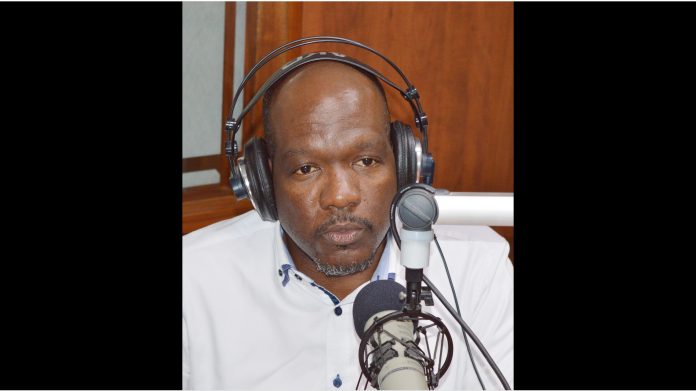By Elesha George
Talks over banning corporal punishment at schools came to a disappointing end on Monday when Minister of Education, Daryll Matthew, announced that there was “nothing else to say” on the matter.
After months of waiting to hear what changes might be made, Matthew told Observer that the “public by and large said they wanted it to remain” as it is.
“The issue was well ventilated in public space. I made my opinion, my feelings, on it very, very, very clear. The society gave its feedback and made its opinion very, very, very clear.

“The laws and the policy are what they are and so, I don’t know that there is anything else to discuss at this point where corporal punishment is concerned,” he explained.
But his statements do not appear to be backed by any formal research conducted by the government. For example, no public consultation or referendum was held. Minister Matthew was asked yesterday for clarification on any research conducted; he did not respond to Observer’s query up to news time.
Last June, Cabinet announced plans to hold consultations in hopes of amending the Education Act 1973, saying they would speak with the teachers’ union, principals, parents and other interest groups to consider abolishing corporal punishment in all public and private schools.
The Cabinet said that it would bring an end to beatings, with schools likely to adopt “alternative forms of punishment, “after two young girls reported receiving beatings from their teachers that left them bruised and bleeding.
Corporal punishment has always received mixed reactions from the public with some arguing that it should be abolished and replaced with more modern disciplinary solutions, while others believe it is necessary to keep children in line.
This was evident in the responses to the news that consultations would no longer take place.
One Facebook user questioned whether it may be better to adopt a policy where the parent would consent to this type of punishment.
“Unless 100 percent of parents agree to having their children beaten, I don’t know the minister should be articulating the wishes of some parents as if all parents agree. There is no copy and paste when it comes to punishment – children react differently. In addition, how do you justify beating someone’s child when their parents have never hit them,” the comment read.
Another post said, “It is not needed – it can be excessive and says a lot about our inability to resolve conflicts without violence, whether physical or verbal. What public is he talking about? Sick of half-cocked responses.”
The question of whether corporal punishment leads to violent behaviour in later life also arose with one contributor asking, “Does anybody else think this could be a contributing factor to high rates of domestic violence, child abuse, youth violence and animal cruelty in Antigua? There’s no better way to normalise violence than by teaching it in schools.”
Others, who were clearly in favour of keeping the disciplinary action, glorified the move, with one person commenting “good job” and another saying, “Bang them. Children out of order nowadays”.
Less than eight months ago, the Education Minister himself said that he was not in favour of corporal punishment and described it as “one of the remnants of slavery” that greatly disturbed him.
He went as far as saying no one would “bang” his “pickney”.
Director of Education Clare Browne also stated last year that any decision made by lawmakers, following public consultations, would be strictly adhered to by the Ministry of Education. When approached for further comment yesterday, Browne told Observer he was in a meeting with the minister.
The current Education Act where corporal punishment is outlined is 49 years old and guides how students should be disciplined.
It clearly states that degrading and injurious punishment should not be administered and that corporal punishment may be administered as a last resort but only by the headteacher or by his deputy, or by a teacher in his presence, under his direction and on his responsibility.
There are also specific guidelines for disciplining girls.
According to the law, “Corporal punishment where necessary should be administered to a girl preferably by a female teacher and in the presence of the headteacher. Such punishment shall not be administered in public.” These guidelines have not always been followed and on occasion, like last year, beatings left girls aged 10 and 12 with bruises about their body.

